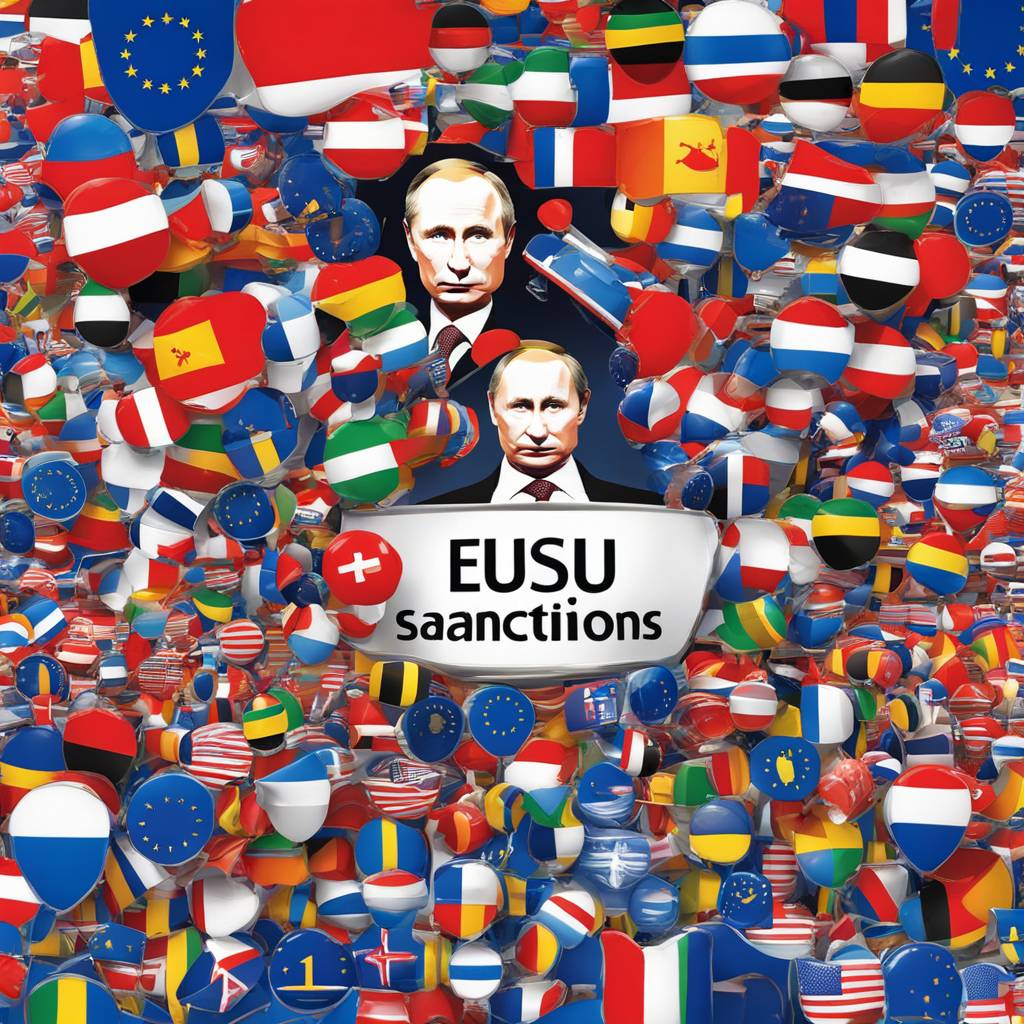President Vladimir Putin is poised to win another term in Russia’s upcoming elections, with critics and opponents facing intense scrutiny, imprisonment, exile, or death. The EU is being urged to take more decisive action to challenge the dominance of the ruling elite and support those seeking to break free from Putin’s grip on power. Despite previous EU sanctions against Russia for its actions in Ukraine and crackdown on dissent, the established regime continues to prosper while ordinary Russians suffer. The death of prominent critic Alexei Navalny in a penal colony has further silenced opposition voices, highlighting the urgent need for stronger international intervention.
Russian dissident Dmitry Gudkov, now residing in Ukraine, criticises the EU for its ineffective implementation of sanctions against Russia. He argues that while the sanctions may have targeted authorities, they have inadvertently benefited Putin and his allies while ordinary Russians bear the brunt of the economic repercussions. The recent barring of Putin’s main challenger, Boris Nadezhdin, from running in the election underscores the challenges facing opposition figures in Russia. Gudkov’s own ordeal includes exile and facing criminal charges, shedding light on the risks faced by those who dare to challenge Putin’s authority within Russia.
Russia’s super-rich elite have amassed significant wealth in recent years, indicating that existing sanctions have done little to stem the tide of prosperity enjoyed by a select few. Yulia Navalnaya, widow of Alexei Navalny, asserts that current sanctions have not targeted Russia’s elite effectively, as individuals have reportedly shifted assets to avoid confiscation. The Kremlin’s ability to sell oil above the limit set by the G7 demonstrates its resilience in evading sanctions and finding alternative channels for trade and revenue. The findings of the report by King’s College London reveal how Russia has sidestepped sanctions by importing banned goods through friendly nations.
In light of escalating tensions and repression in Russia, European officials are being urged to recognise Putin’s regime as illegitimate and offer more robust support to opposition figures and dissidents. Russian activist Anastasia Shevchenko, who faced criminal prosecution and personal tragedy in her defiance of the Kremlin’s oppressive laws, stresses the importance of international solidarity in challenging Putin’s authority. The lack of meaningful support for Russian dissidents, including exclusion from policy-making on sanctions, is a missed opportunity for the EU to utilise valuable expertise and insights from those with firsthand experience of the regime.
Exiled opposition leaders like Gudkov and Androssow are calling for increased Western support for those standing against Putin’s regime, both within Russia and abroad. They advocate for a more inclusive approach that involves Russian dissidents in shaping policy decisions, recognising their unique perspective and expertise in navigating the complex dynamics of Russian politics. As the Russian opposition continues to face threats, arrests, and exile, calls for international solidarity and coordinated action are growing louder. The upcoming elections provide an opportunity for Russians to voice their dissent through symbolic actions like writing ‘Navalny’ on the ballot or tearing it up, aiming to challenge the legitimacy of the electoral process and demonstrate widespread opposition to Putin’s rule.
Despite the obstacles and dangers faced by critics of the Russian regime, there are signs of growing resistance and defiance within Russian society. The outpouring of support and attendance at Navalny’s funeral, despite the risks of arrest, underscores a shifting sentiment among the population. Opposition leaders believe that public acts of protest, such as boycotting the election or participating in demonstrations, can serve to weaken Putin’s legitimacy and generate momentum for change. By leveraging international support, advocating for targeted sanctions, and amplifying the voices of the Russian opposition, there is hope for a shift towards greater democracy and accountability in Russia.













